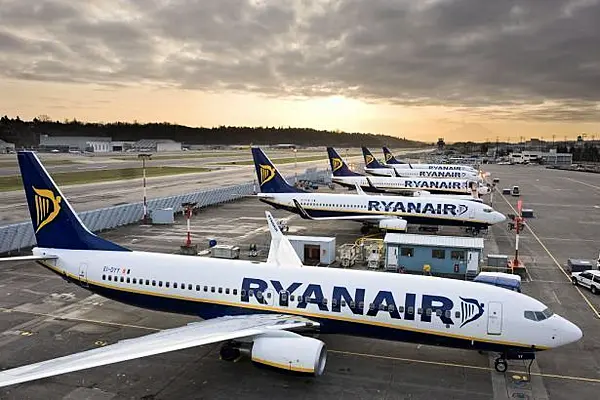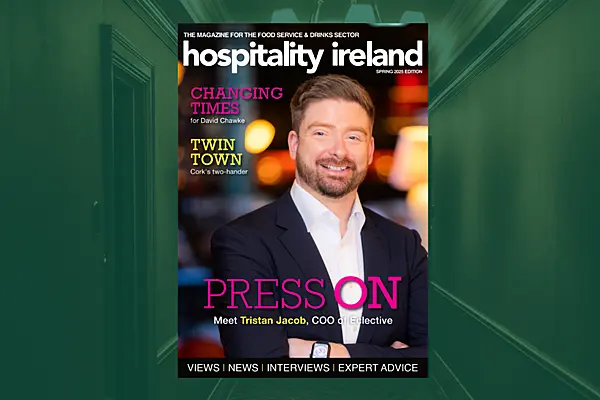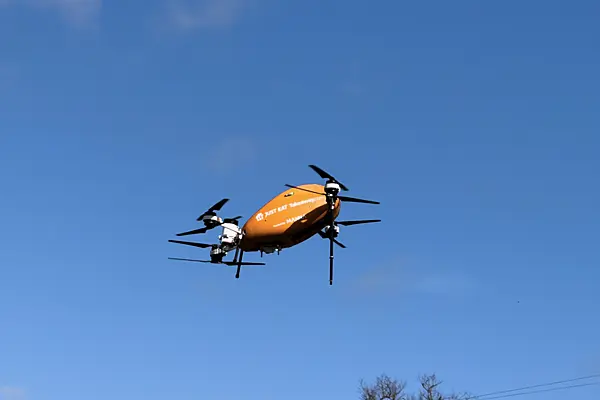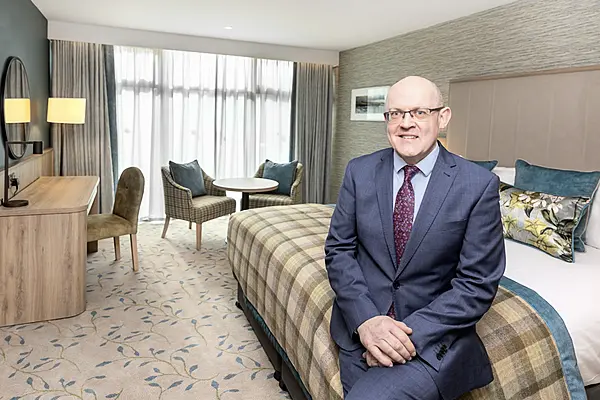A 6% drop in fares plunged Ryanair to its first quarterly loss since 2014 and Europe's biggest budget airline said overcapacity was likely to continue driving ticket prices lower, albeit at a slower pace.
The warning of more tough trading came as the company said it had secured the services of its long-standing chief executive, Michael O'Leary, for another five years.
The 57-year-old, who has led Ryanair for the past 25 years, will move to be CEO of a new group structure, overseeing the firm's four airline subsidiaries. He had said in September he was not sure about committing to another five year contract.
The weak third-quarter performance was flagged two weeks ago when Ryanair cut its profit forecast for the year ending March 2019 for the second time in three months, and the airline reiterated this week that it could not rule out a further downgrade, noting possible uncertainty from Brexit.
The firm said recent falls in oil prices would allow loss-making rivals to survive longer, maintaining excess capacity in Europe as others like Ryanair add more and more planes. O'Leary said he saw an eventual reduction in capacity, as well as consolidation in the sector, returning over 12-18 months.
Ryanair, which makes most of its profit in the summer, said fares were down 1% so far for April to September, with just under a fifth of bookings in place, and pointed to a "flat to slightly down-ish" trend for the year ending March 2020 if short-haul overcapacity in Europe continues.
"We've seen commentary from some low cost competitors with very few bookings in place for summer 2019 promising enormous fare growth. Frankly we do not share the optimism and in some cases the irrational optimism. We think we should be cautious," O'Leary said.
Ryanair's new group structure will be similar to that of British Airways-owner IAG, with four airline subsidiaries - the main Ryanair carrier led out of Dublin, its Austrian and Polish airlines Laudamotion and Ryanair Sun, and Ryanair UK - each led by their own CEOs and management teams.
O'Leary will oversee cost efficiency, capital and aircraft allocation between the airlines in his new role, as well as potential small scale acquisitions, all on reduced basic pay and a lower bonus.
Goodbody analyst Mark Simpson said O'Leary's commitment to five more years was a positive development, while Davy Stockbrokers' Stephen Furlong said there was little sign of him relinquishing control.
"Some of the operations are clearly going to be run at the individual subsidiary levels but is Michael O'Leary taking a step back? Not really and wasn't expected to," Furlong said.
Ryanair said chairman David Bonderman, whose reappointment to a role he has held for more than 20 years was opposed by 30% of shareholders last year, planned to stay on until the summer of 2020, when he will be replaced by Stan McCarthy, the former CEO of Irish food company Kerry Group.
"Rebuild Confidence"
In its fiscal third quarter, Ryanair said an 8% rise in passenger numbers was offset by a 6% decline in average fares, while a 26% increase in ancillary revenues to €557 million was offset by higher fuel and staff costs.
The quarterly loss of €20 million, excluding €46.5 million start-up losses at Laudamotion, compared with a €106 million profit in the same period a year earlier.
Ryanair reiterated its 2018-2019 profit forecast of €1 billion to €1.1 billion, which would be down by as much as 31% on the previous year. In an October profit warning, the company had also blamed a summer of strikes and higher oil prices.
Pilot unions in some countries have suspended talks over pay conditions in protest at the threat of base closures and while O'Leary said the airline had made "very good progress" in those talks, he could not rule out further base cuts if fares keep falling.
"We believe that Ryanair needs to conclude a CLA (Collective Labour Agreement) with the British Airline Pilots Association (BALPA), trade through to the spring with no union disruption and keep the market informed on post-Easter yield developments to rebuild confidence," Goodbody's Simpson wrote in a note.
"At that point we feel the market will once again place a premium on Ryanair's sustainable business model, with FY20 costs expected to be down year-on-year."
News by Reuters, edited by Hospitality Ireland. Click subscribe to sign up for the Hospitality Ireland print edition.









